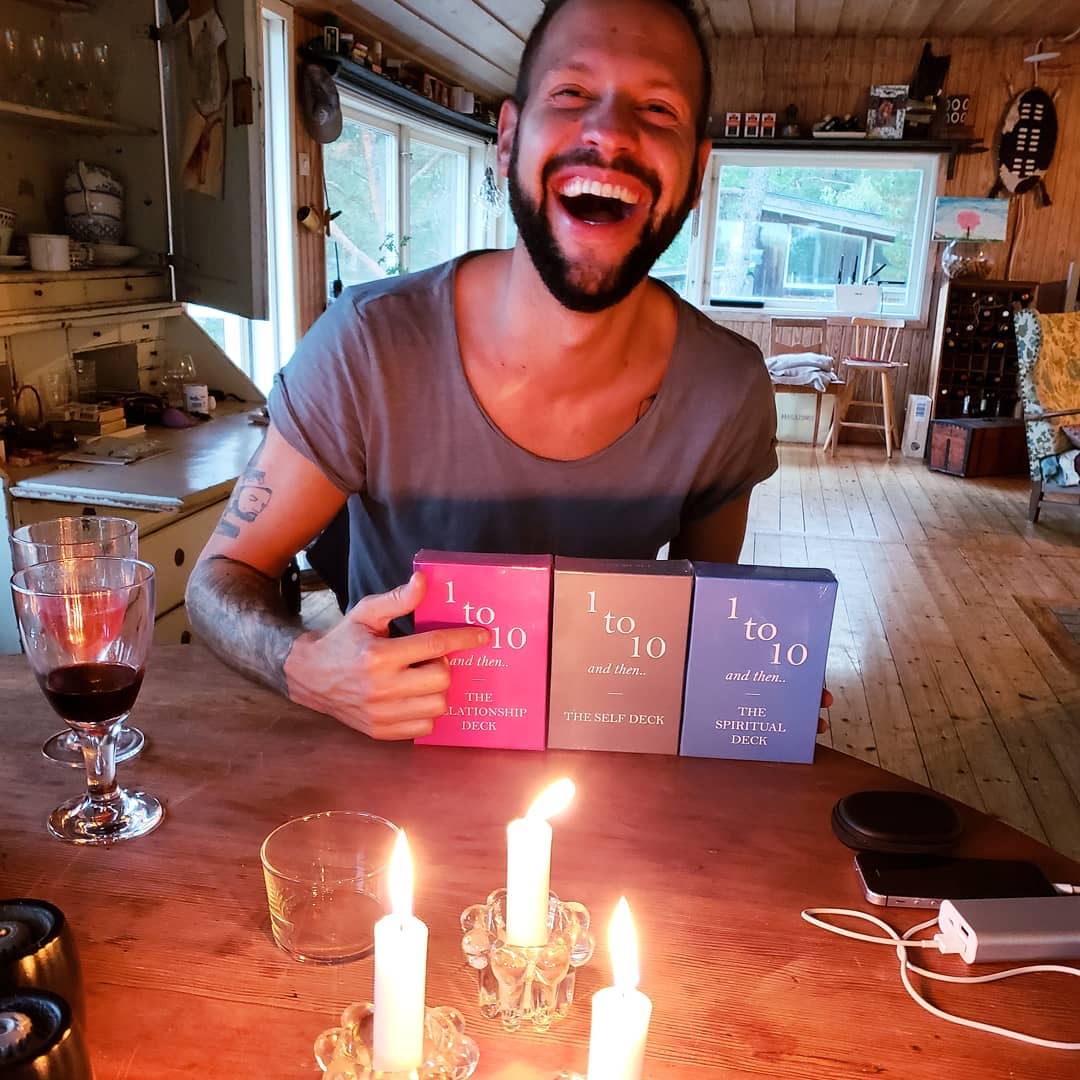Lao Tzu was recorded to have said “He who knows others is wise; he who knows himself is enlightened.”
Farzad, a tech executive living in Milwaukee, was already known for his provocative discussions, his way of driving others to think differently and consider aspects of themselves that they might normally shy away from. In spite of this, he found that people have a tendency to do one of two things.
On the one hand, they would move the conversation to external subjects, talking about events, news, history, other people, anything but themselves. On the other hand, when they did talk about themselves, they would project the person they were trying to be instead of who they were. Neither of these were helpful at getting to the deeper matter of who we are.
For Farzad this journey was deeply personal. His marriage to someone he cared deeply about had fallen apart, and he knew somewhere at the heart of that were a set of misunderstandings about himself and his perception of himself and the world – blindspots that most of us have, but which can create a gulf between us and those we love, can cause us to behave in ways we don’t intend or miss things that are before our eyes.
He was passionate about getting to the heart of things, finding ways to overcome the “small talk” and the stories that we use to protect ourselves from true intimacy.
During a conversation with friends, in a moment of frustration, he found himself putting a question onto a note-card and asking everyone not to overthink, but just to give the idea a number from one to ten in terms of how much it applied to each of them. The thought followed that every person might have a number for everyone else.
They were all surprised by how, in simplifying the approach and taking all the language out of it, they had been able to give each other real information, real insights about their beliefs and ideas. Once they had the scores, then they could open up the conversation about what it really meant to them and go even deeper.
They had discovered something new – a human truth machine that could provide real feedback and go beyond egoic defenses. Seeing how valuable it had been for him and his friends, Farzad decided that he wanted to make this approach available for everyone. He captured many more insightful questions that he had come across through his own personal journey, organized them in terms of our relationships to ourselves (The Self Deck), each other (The Relationship Deck), or the world we live in (The Spiritual Deck) and “1 to 10 and Then” was born.
Since then, accolades have flowed in from those who have used “1 to 10 and Then” to build deeper connections with the important people in their lives. One friend played the game with his current wife, his ex-wife, and his step-daughter.
“I had known these people intimately for twenty years or more, and I couldn’t believe that I was learning new things about them”, the friend later told Farzad. “Somehow we had just never talked about things that deeply.”
Reactions came to him from much farther afield as well. A renowned clinical psychologist played “1 to 10 and Then” with his wife’s extended family at Christmas who he described as “not touchy feely”, “old-school” and “reserved”. He expressed how much they had really loved being able to connect at a deeper level with her family, for the first time in 32 years of being related by marriage.
All of his attempts before that had been labeled as “therapatizing” and had been rejected or dismissed. By putting meaningful conversations in the context of a game, “1 to 10 and Then” had broken down the barriers that had blocked their ability to communicate.
Ultimately, we all want to be seen. However, we put up walls because we are worried that exposing ourselves could lead to judgments or misunderstandings that could hurt us at our core – anxieties often rooted in childhood experiences. The result is a kind of existential loneliness that is worse in many ways than the judgment. “1 to 10 and Then” gives people a safe way to open those doors, simplifying the exchange and then allowing us to talk through what has been discovered. For most people, that is invaluable.
It also allows us to practice seeing others and talking about intimate, conscious and subconscious beliefs, something we all need to get better at in a divided and digitized society.
In the words of the famous Psychologist Erik Erikson, “The more you know yourself, the more patience you have for what you see in others.”
This is a Contributor Post. Opinions expressed here are opinions of the Contributor. Influencive does not endorse or review brands mentioned; does not and cannot investigate relationships with brands, products, and people mentioned and is up to the Contributor to disclose. Contributors, amongst other accounts and articles may be professional fee-based.

